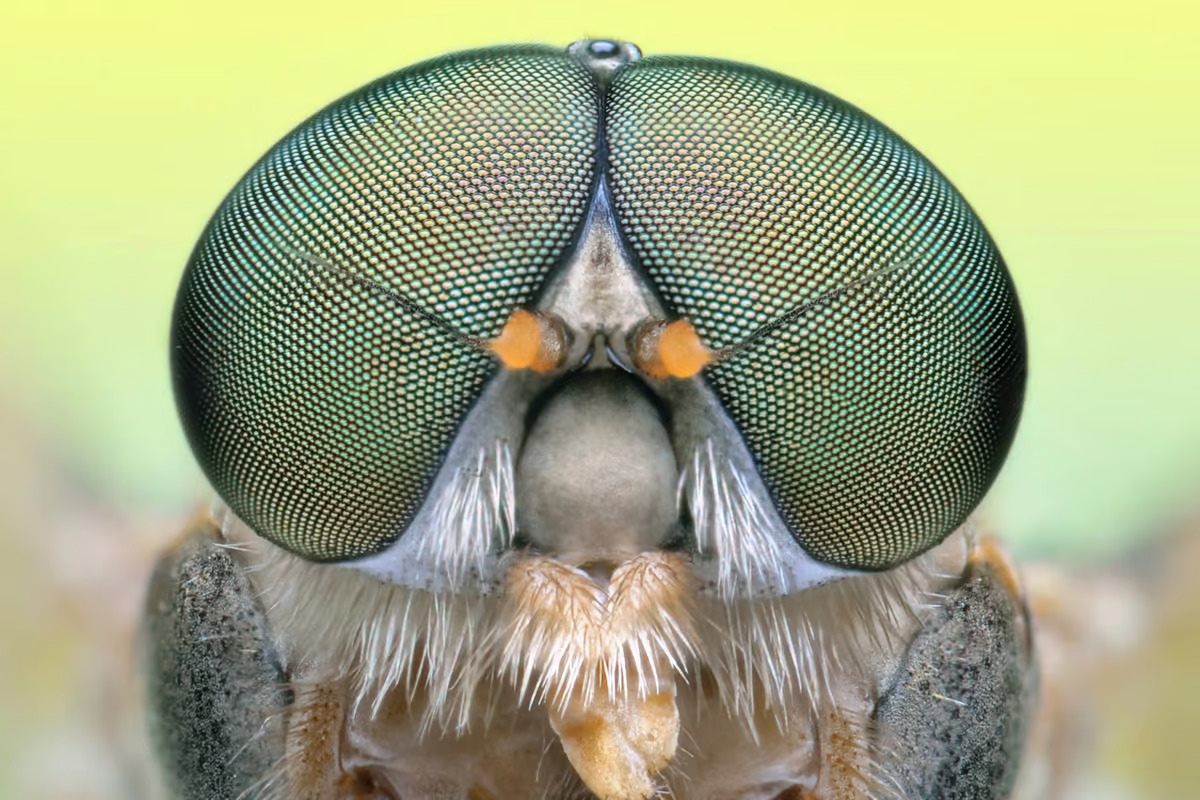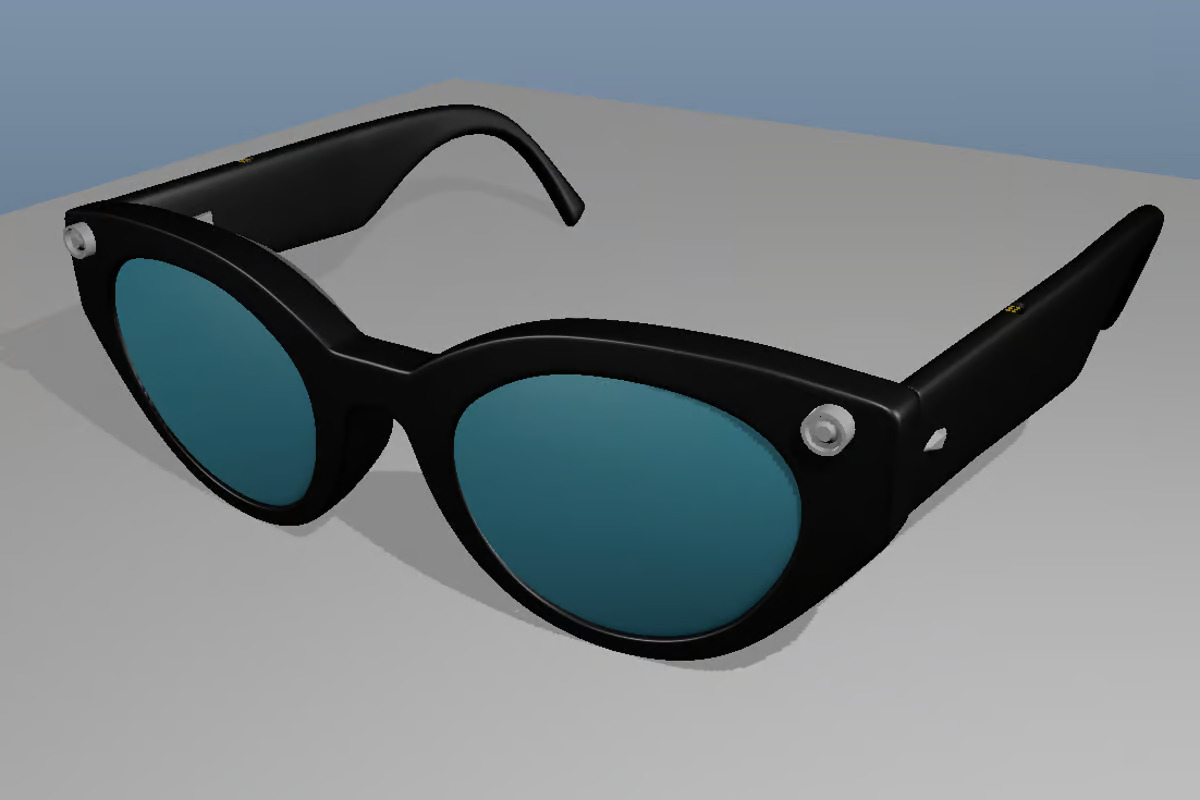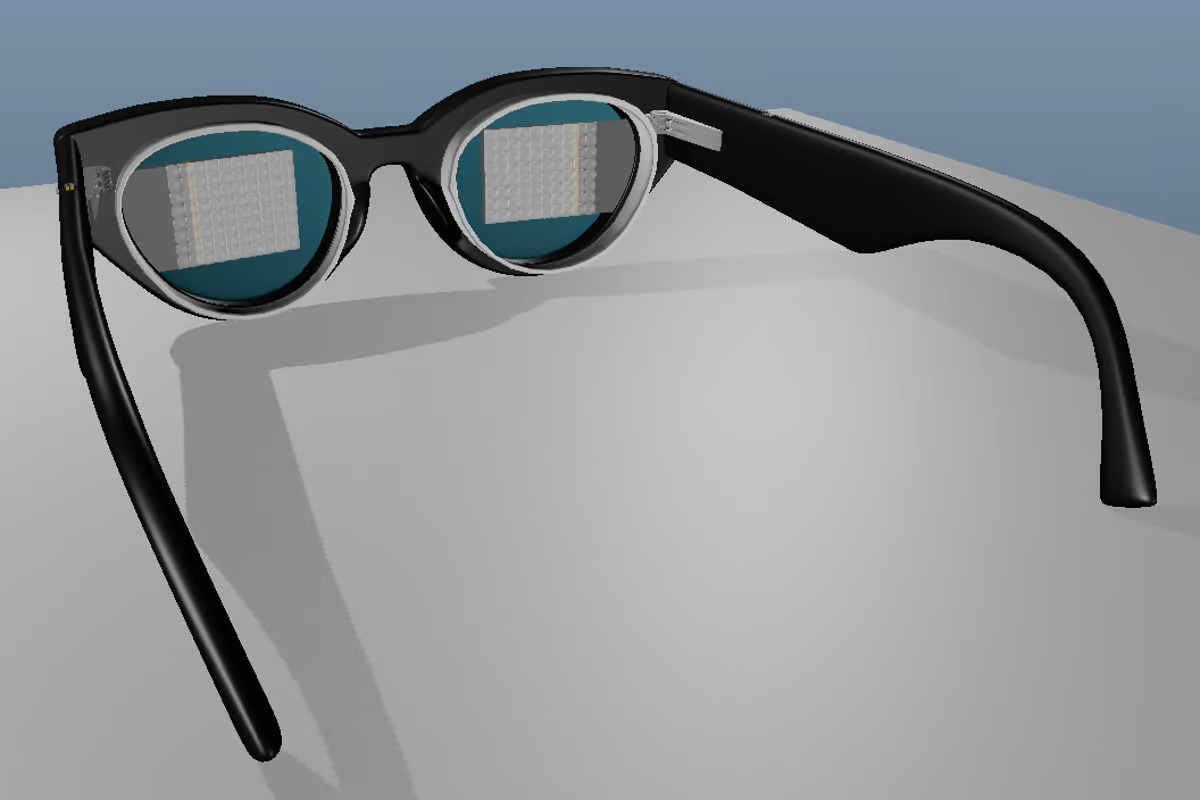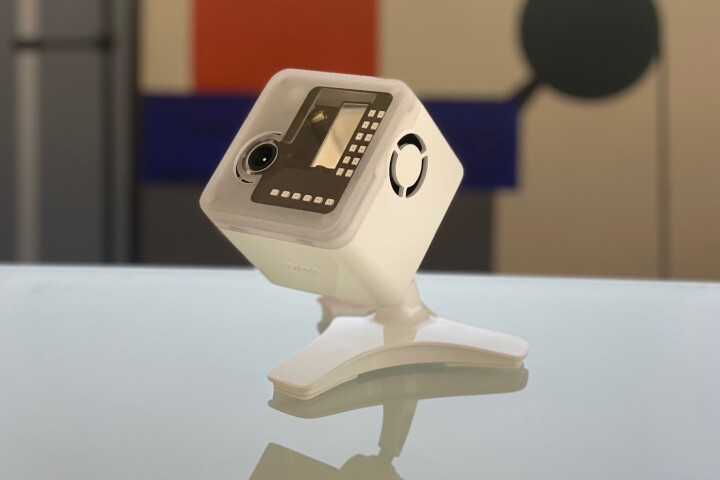 Whereas flies and most other insects have compound eyes (pictured), the SolidddVision Smartglasses have compound lenses. Depositphotos –
Whereas flies and most other insects have compound eyes (pictured), the SolidddVision Smartglasses have compound lenses. Depositphotos –
Macular degeneration is one of the leading causes of blindness, affecting the center area of the retina. That area is known as the macula.
In one of the two main forms of macular degeneration, light-sensitive cells in the macula get damaged as cellular debris accumulates around them. In the other form, abnormal blood vessels growing behind the retina damage the macula by leaking blood into it.
Whichever the cause may be, the person is left with either a blurry or completely blind spot in the center of their vision. The SolidddVision Smartglasses, made by New York-based startup Soliddd Corp, are designed to address that problem.

There are two forward-facing cameras on the front of the glasses – one camera at the far left and one at the far right – which capture a stereoscopic view of what’s in front of the wearer.
There are also two inward-facing cameras that track the direction of the user’s gaze, plus there are two inward-facing displays, one in front of each eye. Each of these displays consists of an array of tiny lenses, not unlike an insect’s compound eyes.

Within each array, each lens projects a tiny version of the forward-facing camera’s picture onto the still-healthy peripheral area of the retina, from a subtly different angle. In a process known as stereopsis, the brain’s visual cortex makes sense of all those almost-but-not-quite-identical visuals by reportedly “constructing a single, full-field 3D, sharply focused image.” In other words, the user perceives one full image with no blind spot in the middle.
“When the brain gets redundant coverage of the same basic visual information, it automatically combines the information,” the Soliddd Corp scientists explain in a white paper on the technology. “If some area of the overall field of view is lacking any information, the brain patches in that missing information from another view.”
The company says that in pre-clinical tests performed on 30 people with macular degeneration, all of the participants experienced a reading speed increase of at least 50% when using the glasses. Those tests were conducted by Lighthouse Guild, a non-profit vision services group.
A beta version of the SolidddVision Smartglasses will be on display this week at CES 2025 in Las Vegas. A production version should follow later this year, with pricing to be announced at that time.
It should be noted that Samsung-funded South Korean startup Cellico already offers camera-equipped assistive glasses of its own. They capture an image of what’s in the user’s blind spot, then display that image in the person’s peripheral vision, where they can see it.
Source: Soliddd View gallery – 3 images
–























